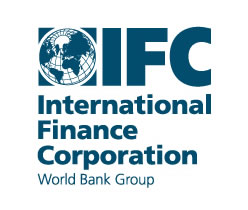Bretton Woods Project | 20 November 2009
As the International Finance Corporation (IFC), the private sector arm of the World Bank, announces plans to increase investment in agribusiness by up to 30 per cent in the next three years, NGO reports shed light on the IFC's role in the 'land grab' movement and flaws in its approach to the food crisis.
A report from US NGO Oakland Institute examines 'land grabbing' - the acquisition of land, often by private investors or wealthy nations, in developing countries in order to produce crops for export. The report links this increased demand for foreign farmland to the IFC and its Foreign Investment Advisory Services (FIAS), which advises borrower countries on how to attract domestic and foreign investors. It exposes a disjuncture between assumptions behind the IFC's investment in agriculture and the real effects of its policies, arguing that, "increased investment in agribusiness and high input, capital-intensive monocultures will undoubtedly have adverse effects on rural livelihoods."
The report uses the case of Pakistan to illustrate how IFC and FIAS involvement creates food security risks. The study states that, "in line with the IFC and FIAS philosophy, the government has changed laws and is allowing legal favours for foreign investors willing to invest in Pakistan." These include providing land leases up to 90 years in which the investor retains 100 per cent proprietary rights, 10 year tax holidays and the right to export 100 per cent of the produce. Also worrying are estimates that 25,000 villages will be displaced as a result of upcoming land deals. Investment continues despite protests from farmers.
In August, a post on the IFC's private sector development blog announced that FIAS was in the process of developing a new benchmark, to be ready in early 2010, modelled on the Bank's discredited Doing Business indicators (see Update 67, 66). The 'investment across borders' benchmark, will include an indicator on 'accessing land' that will measure how easily foreign investors can lease land and what protections are in place for investors, countries and citizens.
Growing investment
In 2008, responding to the food crisis, World Bank president Robert Zoellick called for a New Deal on Global Food Policy, centred on an increase in agricultural production. The IFC is working to bring the private sector into the bargain (see Update 67). In the financial year up to June, the IFC had invested $2 billion in agribusiness and agrofuels, the fifth consecutive year of growth. This included the IFCs largest equity investment in the agribusiness sector to date, a $625 million investment in Altima One World Agricultural Development Fund which according to a staffer has aspirations to become the "first Exxon Mobil of the farming sector."
In the lead up to the annual meetings in Istanbul, proposals were floated for a Financial Coordination Mechanism (FCM), a multilateral trust fund to scale up agricultural assistance to low-income countries, overseen by the World Bank. NGOs CIDSE and APRODEV, in recommendations to the EU for the World Summit on food security state that they "oppose the proposal to create a multi-donor trust fund to advance agricultural productivity under the auspices of the World Bank."
An Oxfam briefing on global food security states that, "The exclusion of developing country governments and civil society from the governance of the proposed World Bank fund ... suggests that this is business-as-usual rather than the necessary radical reform."
In Istanbul plans for a Global Agriculture and Food Security Programme (GAFSP) were presented with three windows for country support envisaged:
- transfer of resources to support the public sector via World Bank, International Fund for Agricultural Development (IFAD) and the regional development banks;
- support for private sector via the IFC
- support for technical coorperation
As yet, no timeline has been set for this initiative.
The reports are timely as feedback from the UN high level task force on the global food security crisis (HLTF), on which the World Bank and IFC sit, calls for more research to provide "additional analysis on links between food security and access to land and land acquisition".
Preferential treatment
In February, a letter from US NGO the Center for International Environmental Law (CIEL) to Zoellick focussed on the agribusiness department's interference in a complaint concerning an IFC-funded ethanol plant in Nicaragua (see Update 61).
The complaint cites the breakout and subsequent deaths from chronic renal insufficiency potentially linked to the ethanol plant and associated sugar fields. The IFC continued to fund the Nicaragua Sugar Estates Limited (NSEL) without considering the epidemic and in responding to the initial Compliance Advisor Ombudsman (CAO) report made clear "false and misleading statements" that "undermine the CAO and inappropriately and unjustly influence the negation process."
CIEL argue that the IFC acts as if it has a "greater interest in protecting its own reputation and the interests of IFC clients than in achieving IFC's mission to help people escape poverty and improve their lives." They accuses the IFC's behaviour of being "symptomatic of a larger pattern in which IFC staff do not support the CAO process". In response, Zoellick insisted that the IFC is supporting fully the CAO's efforts in this case. The case is still pending with the CAO.














